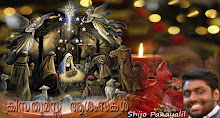December is here, and in a great many heads, this month brings thoughts of giving gifts. Yet, there are many people today who have serious concerns regarding the manner in which we celebrate Christ's birth. Christmas is a celebration of which many Christians are usually divided over. Let's take a few moments to consider some of the more commonly asked questions about Christmas. We have to avoid the attitude that says "Don't bother me with the facts, I have made up my mind already."
Is the celebration of Christmas rooted in a pagan tradition?? The word Christmas is not a pagan word because it clearly bears the name "Christ" in it. Christmas actually is a compound word which means "Christ-mass". It was the "mass" that celebrated the birth of Christ. Nowhere in the New Testament are we commanded to observe the birth of Christ, however, at the same time, neither are we commanded not to observe it.
Some people have made much of the claim that December 25 was supposedly the date of a pagan festival commemorating the birthday of a false deity. This, however, does not in and of itself make the celebration of Christmas pagan. The real question that must be addressed is, What was the church's intent in choosing December 25 for the celebration of Christmas in the first place?
The answer may surprise you! The early church chose this date to point to the triumph that Christ's birth represented over the pagan traditions of the Roman empire. In other words, the church was not endorsing a pagan ceremony but establishing a rival celebration. Today the world has all but forgotten the pagan gods of Rome. But at least a billion people on planet Earth celebrate the Christ of Christmas.
Any encyclopedia will show that the week of December 22-31 was celebrated as the "Saturnalia", a Roman pagan festival that worshipped Mithra, the sun god whose birth they also celebrated at the time, particularly December 25. The Saturnalia was a time when it appeared that the forces of darkness and chaos would conquer the forces of light and order.
During this old Roman festival the light of day was at its shortest. This instilled fear to the Romans and pagans alike. It seemed as if the sun god was dying and that his power was waning and it was common to light bonfires to heat as it were the sun's power who was represented by the god Mithra. Over time, pagans observed that the more they practiced the festival of lights and burning bonfires, the days tended to get longer, and as such they continued this tradition.
The early church Fathers debated over the time of Christ's birth around AD 200 and there is some evidence that Christians commemorated the birth of Christ although the dates were different. As of AD 354, December 25 was labeled as the date of Christ's birth. The church had attempted to stomp out the cult of Mithra, the sun of god by declaring that it would instead celebrate the birth of the "sun of righteousness" (Malachi 4:2), a title understood to be messianic. The move of the church stomped out Mithraism in a matter of time.
Many times we are guilty of denouncing things as "pagan" without careful consideration. The days of the week are all of pagan derivation. Monday (Moon day), Thursday (Thor's day), Saturday (Saturn's day) and Sunday (day of the sun) are still terms that we still use today but it does not follow that we worship these pagan deities.
In taking December 25, the church was in effect stating that this day belongs to God, and that it would dedicate the day to celebrate the birth of Christ. Christmas is not a celebration of a birthday, but a celebration of an event, namely the Incarnation, when God became flesh (John 1:1,14).



No comments:
Post a Comment